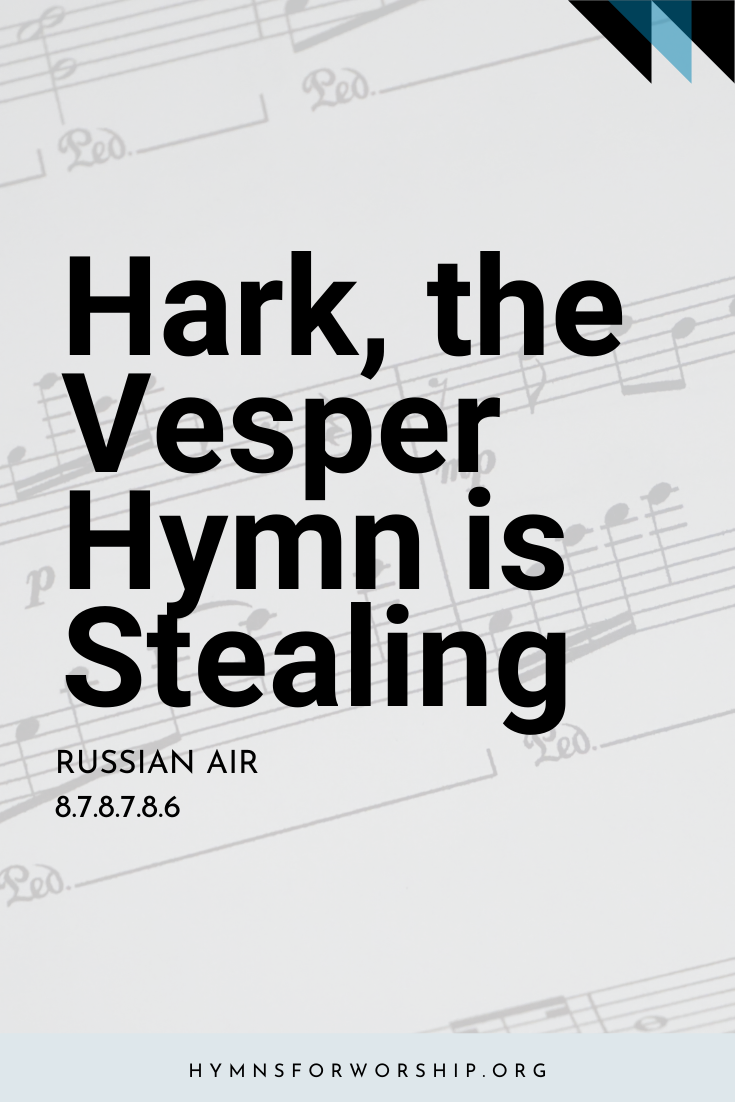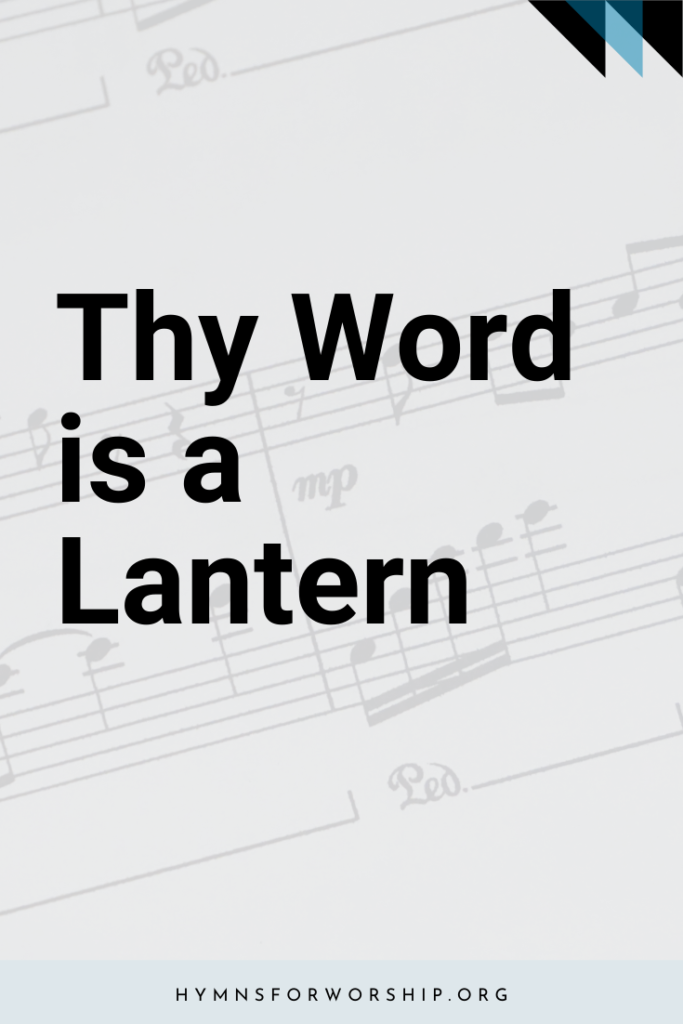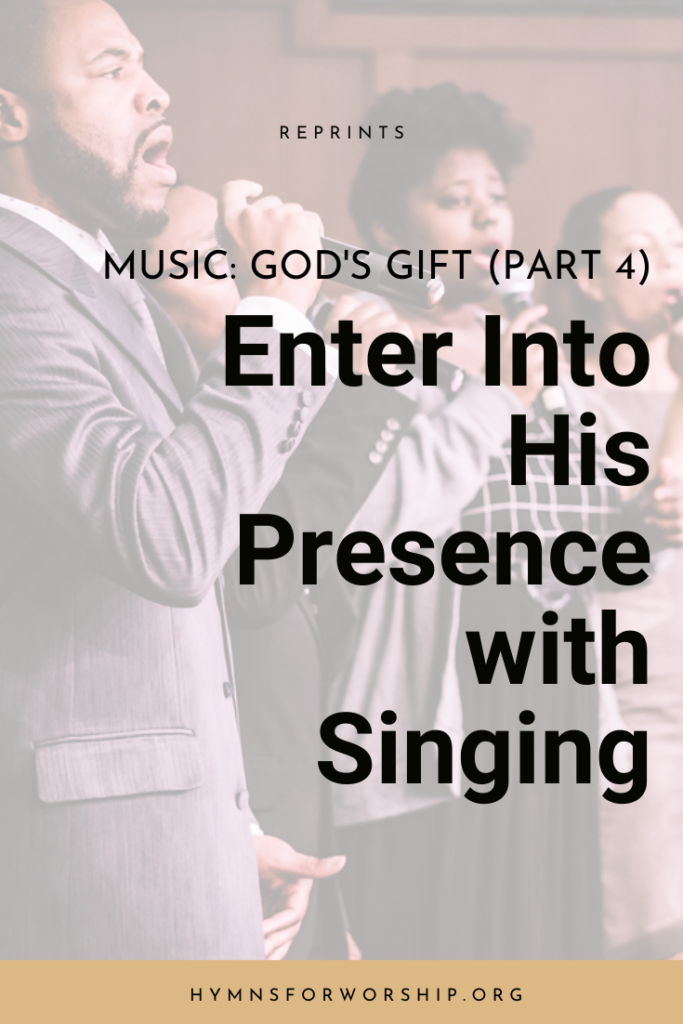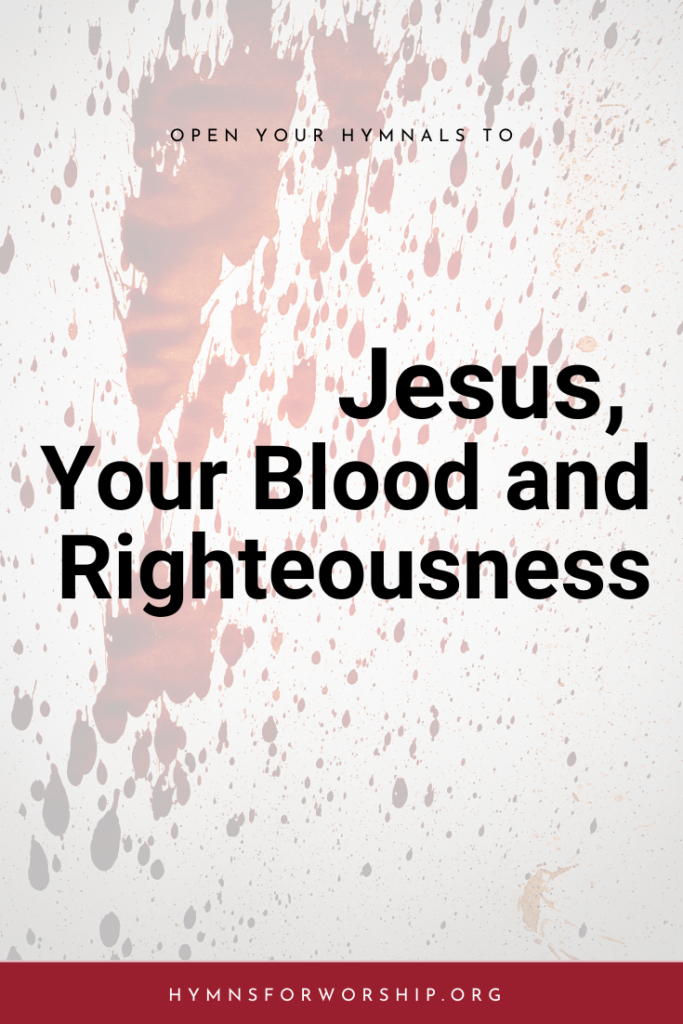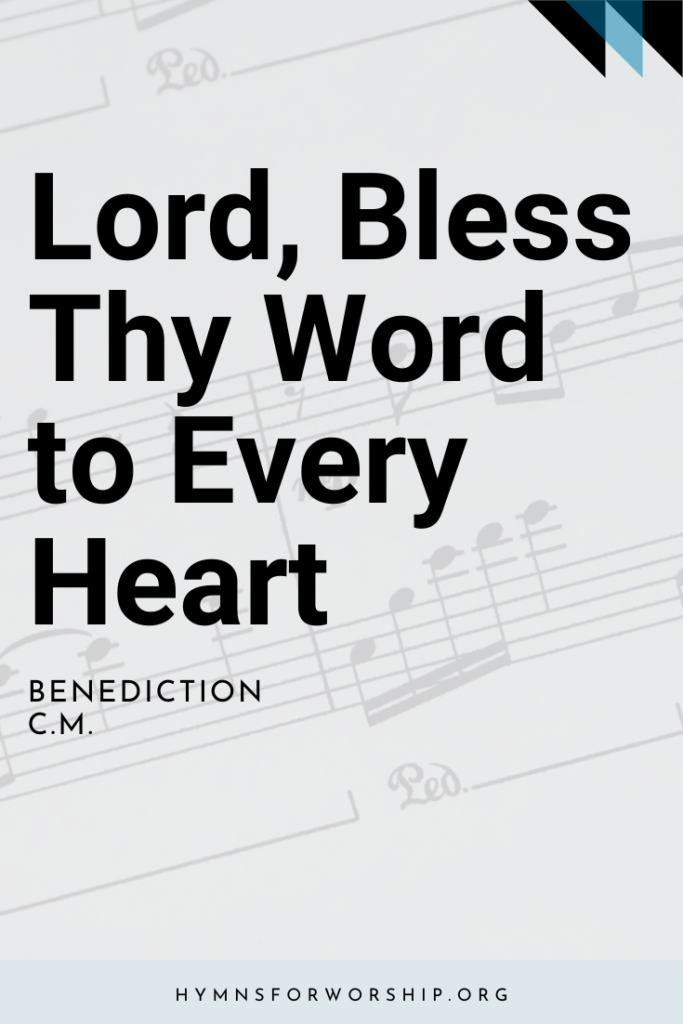WORSHIP >> EVENING WORSHIP
SDAH 58
Hark! the vesper hymn is stealing
O’er the waters soft and clear;
Jubilate, Jubilate, Jubilate,
Amen.
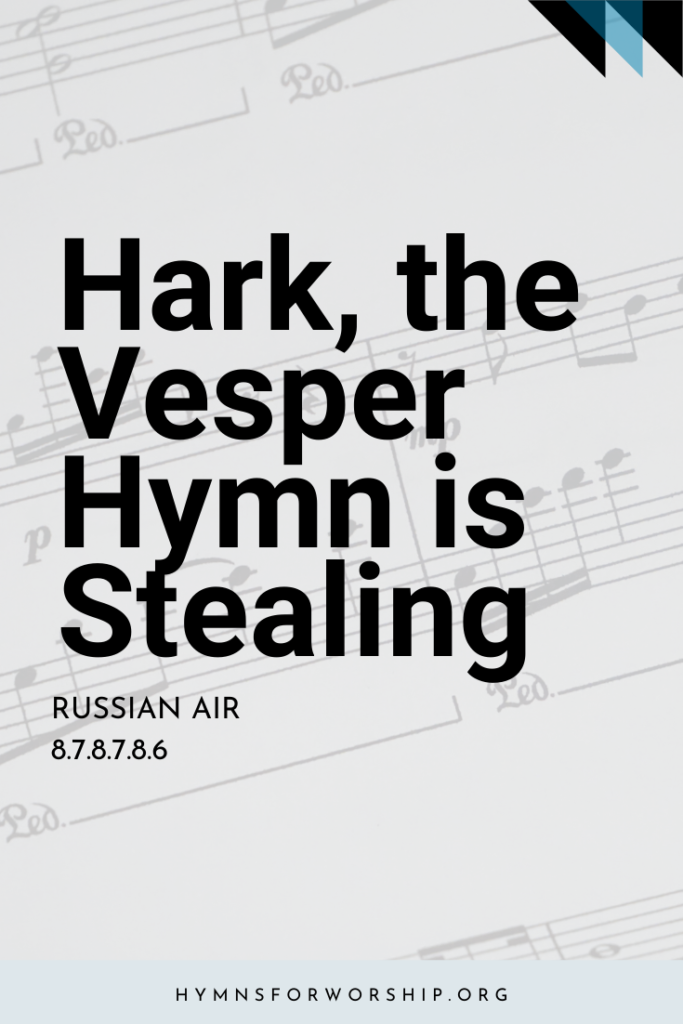

Text
1
Hark! the vesper hymn is stealing
O’er the waters soft and clear;
Jubilate, Jubilate, Jubilate,
Amen.
2
Nearer yet, and nearer pealing,
Soft it breaks upon the ear.
Jubilate, Jubilate, Jubilate,
Amen.

Hymn Info
Author
Thomas Moore (c. 1710-1792)
Performance Suggestions
Accompaniment may play either or both sources for the duration of the canon. This canon may be sung by from 2-18 voices. Enter at any measure. “Jubilate” means “Be joyful” pronounced, “You-bee-lah-tay.”
Copyright
Arrangement copyright 1984 by Melvin West
Hymn Tune
RUSSIAN AIR
Metrical Number
8.7.8.7.8.6.
Composer
Adapt. by Max V. Exner
Arranger
Accomp. by Melvin West (1930-)
Tune Source
1984
Theme
EVENING WORHIP
Hymn Score
Piano Accompaniment
Notes
Get to know the hymns a little deeper with the SDA Hymnal Companion. Use our song leader’s notes to engage your congregation in singing with understanding. Even better, involve kids in learning this hymn with our homeschooling materials.
These words first appeared as a glee for four voices in A Selection of Popular National Airs, With Symphonies and Accompaniments by Sit John Stevenson, Mus. Doc. The Words by Thomas Moore, Esq. (London, 1818). Here it was called RUSSIAN AIR and in many collections is attributed to Dimitri Bortniansky. However, noted hymnologist Leonard Ellinwood says that a search through Bortniansky’s works turned up nothing remotely resembling this tune. Stevenson added a third line to the music to make it a conventional hymn tune, as found in the Episcopal Hymnal, 1940, where it is named VESPER HYMN, as in several other hymnals. Max Exner, about whom nothing is known, evidently adapted the three lines to make it into a canon.
The tune came to America and was included in Joshua Leavitt’s Christian Lyre, 1830. It had previously been in a German collection, Die Neue Harmonie (The New Harmony) and a Collection of Church Music, 1827, by Michael Bentz, Gettysburg, Pennsylvania. Between this date and 1957 it was used by 35 American hymnals.
Thomas Moore wrote many songs to airs already popular, for example, “The Last Rose of Summer” and “Believe Me if All Those Endearing Young Charms.” Also, see SDAH 477, “Come, Ye Disconsolate,” which he wrote.
The Latin word jubilate (“be joyful”) recalls Psalm 149:5: “Let the saints be joyful in glory.”
Moore was born May 28, 1779, in Dublin, Ireland (his birth and death dates were given incorrectly in the first four printings of SDAH) and was educated at Trinity College, Dublin. Then he went to London in 1799 to study for the bar; on completion he was appointed in 1803 as registrar of the Admiralty Court on the island of Bermuda. He returned to England in 1804 and made a name for himself as an Irish poet, writing odes, poems, and a biography of Byron, and collecting melodies. His hymns appear in his Sacred Songs, 1816, which contains 32 of his compositions, and in his collected works of 1866. He died at the small village of Chittoe, just east of Bath, England, on February 25, 1852.
John Andrew Stevenson (1761-1833) was born in Dublin, and admitted as a chorister of Christ Church Cathedral there at age 10. After five years in the choir of St. Patrick’s Cathedral, he became a vicar-choral there in 1783 and went back to Christ Church in 1800. In 1791 Dublin University gave him honorary D.Mus. degree, and he was knighted in 1803. His final post was as organist and music director of the Castle Chapel. He wrote works for the stage; oratorio, Thanksgiving; and a number of songs, but his main claim to fame is his collection Irish Melodies,1807, set to words of Thomas Moore. In St. Patrick’s Cathedral, Dublin, a monument has been erected to his memory.
Melvin West (1930- ; see Biographies) wrote the accompaniment, either half of which can be played for the duration of the canon.

